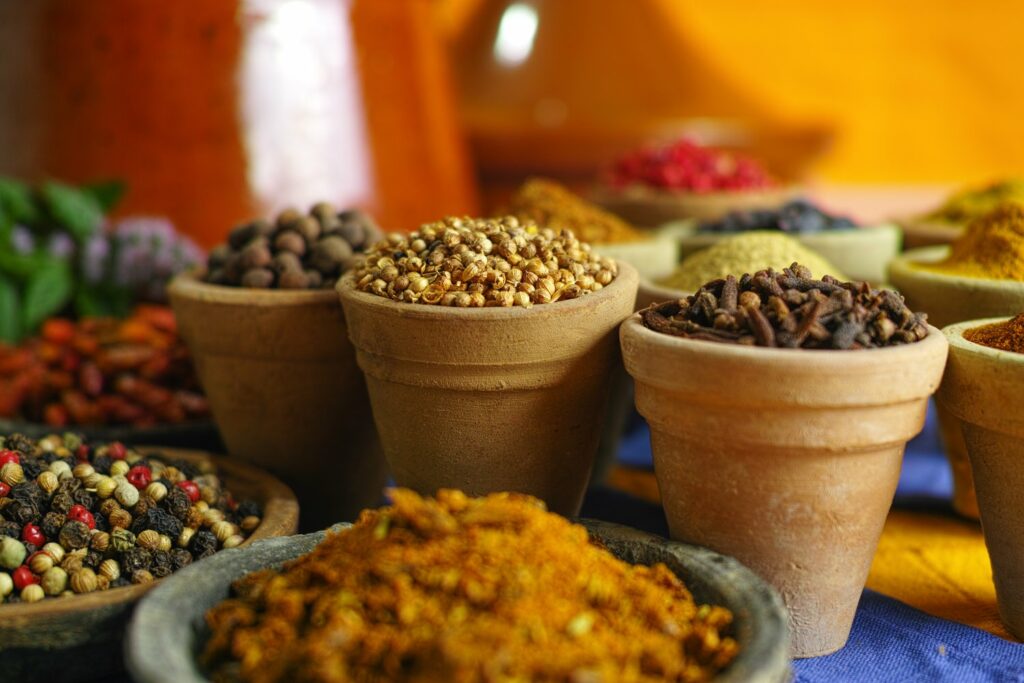The science of Ayurveda is one of the oldest medical systems which comprises the study of thousands of herbs and their medicinal benefits. These herbs have the ability to treat many chronic diseases which are considered as incurable in modern system of medicine.
The herbs protect the body from various kinds of diseases and they have other health benefits as well.
7 Ayurvedic herbs that have health benefits are:
1.Ashwagandha (Withania somnifera): Ashwagandha is considered as a rejuvenator in Ayurveda. The root of Ashwagandha is regarded as a tonic, narcotic, thermogenic, anthelmintic, astringent and stimulant. The rejuvenating herbs are those which promote a youthful state of physical and mental health. It is used for various kinds of diseases but it has special action on nervine disorders.
•It also improves the body’s defence against diseases as it improves cell-mediated immunity.
•The potent anti-oxidant properties of Ashwagandha help in protecting against cellular damage that is caused by free radicals.
2.Tulsi (Ocimum sanctum): Tulsi is often referred to as ‘elixir of life’ in Ayurveda. The healing powers present in Tulsi is used to treat many different health conditions.
•Tulsi has immuno-modulatory, anti-cancer, hepatoprotective, anti-inflammatory, radioprotective, anti-microbial and anti-diabetic effects.
•It also has stress relieving and calming effects on the brain.
•Tulsi tea also protects against cancer by scavenging free radicals.
3.Brahmi (Bacopa monnieri): Brahmi is an important plant in Ayurveda. The word Brahmi is derived from “Brahm” which indicates positive energy. It is used to treat various disorders for centuries such as pain, epilepsy, inflammation etc.
•It is also useful in mental disorders such as mental fatigue and considered as an anti-anxiety drug.
•Taking brahmi powder with milk helps in improving brain functions by preventing brain cell damage caused by free radicals due to its anti-oxidant property.
4.Amla (Emblica officinalis): The health benefits of Amla are attributed due to its immuno-modulatory, rejuvenating, anti-oxidant and anti-aging properties.
•It is a richest source of Vitamin- C.
•In Ayurveda, amla is an important ingredient of medicines having rasayana (rejuvenating) properties.
•The amla fruit is laxative, diuretic, rejuvenative and useful in cardiac disorders, flatulence, hyperacidity, peptic ulcers etc.
5.Turmeric (Curcuma longa): The turmeric plant has a very long history of medicinal use, dating back nearly 4000 years.
•Various researches have shown that more than 100 components have been isolated from turmeric.
•Turmeric is anti-inflammatory, anti-microbial, immune-modulatory, anti-allergic in nature.
•It is used in Ayurveda for the treatment of various acute and chronic disorders such as rheumatoid arthritis, cancer, conjunctivitis, wound healing, urinary tract infections, liver ailments, abdominal pain etc.
•Due to its properties, it is also useful in diabetic wounds, runny nose, anorexia, cough, sinusitis, abdominal pain etc.
6.Arjuna (Terminalia arjuna): Arjuna herb has been introduced into Ayurveda as a treatment for heart disorders by Master Vagbhata. This herb is a nature’s boon to the mankind.
•Arjuna is an effective anti-oxidant, excellent tonic for cardio-vascular disorders and very helpful in regulating hormonal disorders in the body.
•Various ailments like itching, rashes, scars, skin infections like psoriasis can also be treated with the regular use of T.arjuna.
•Due to its astringent nature, it is useful in bleeding disorders, heals fracture and wounds quickly.
7.Jeera (Swertia chirata): Jeera is commonly known as cumin seeds. In India, cumin seeds are included in food.
•These seeds have effect on liver, stomach and intestines.
•Due to gas accumulation in the abdomen, taking few jeera seeds is the most suitable remedy.
•It modulates the secretion of gastric acid and increases the secretion of pancreatic juice from the pancreas.
8.Dhaniya (Coriander sativum): Dhaniya is commonly known as coriander. The soft leaves of dhaniya have multiple health benefits.
•The fresh leaves and seeds of coriander have multiple health benefits.
•The chopped leaves and coriander powder are used for garnishing various dishes in India.
•Apart from garnishing, these have a significant effect in digestion such as flatulence, controlling spasmodic pains etc.
•It is diuretic in nature, acts as a cardiac tonic, useful in burning sensation and useful in treating pitta aggravation.
Make use of these wonderful herbs and spices to stay healthy!
Disclaimer:-
This article is not a substitute to the standard Medical Diagnosis or personalized Ayurvedic Treatment! It is intended only for Information!
For experts consultation, please write us at care@blessayurveda.com.
2,572 total views, 4 views today
